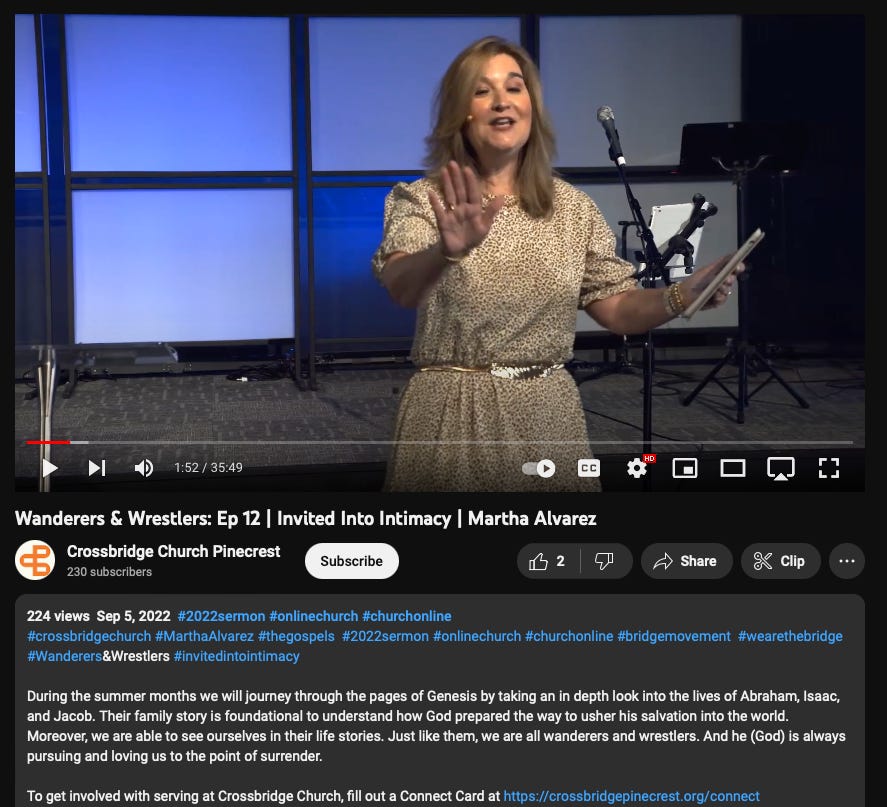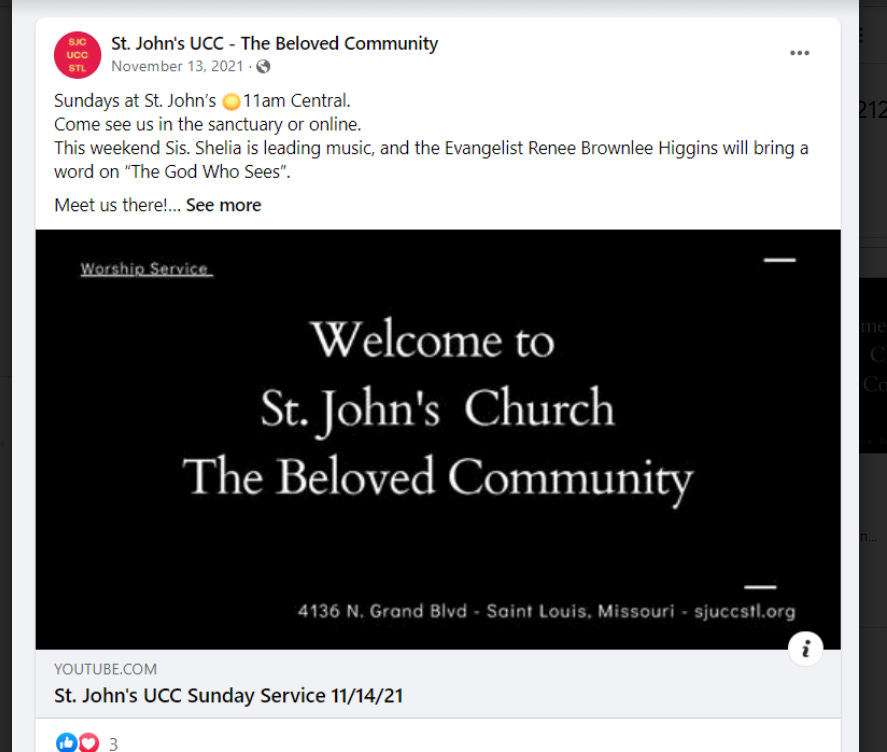A Plea for Patience in the PCA (1)
Those in the PCA grieving because of the divisions caused by deviations from our Standards have cause for concern, but greater cause to labor patiently and faithfully within the PCA.
This is the first of a two-part series. Part two will be published on Monday, March 6, 2023.
In his comment on John 10:31, John Calvin makes a fascinating insight: true religion produces holy zeal and unbelief produces rage. Calvin observes a difference in how the holy zeal of true religion and the rage produced by unbelief are manifested: “unbelief is the mother of rage, and the devil hurries on the wicked.”
In that little comment we get a sense of Calvin’s pastoral heart. Despite ministering in a time of great spiritual and ecclesiastical dysfunction and in a city with grave moral depravities with staunch opposition, Calvin patiently and zealously preached and taught the truth.
Calvin understood the zeal of true religion can be patient, but the rage of unbelief acts hastily. Calvin’s demeanor and his patient plodding are instructive for our present moment in the Presbyterian Church in America (PCA).
We should not expect the theological and practical deviations from our Standards to be dealt with speedily. But that should not upset the heart motivated by true religion, which alone can practice patient zeal.
Deviations in the PCA
There are grave theological and practical deviations from our Standards disturbing the purity and peace of this faith communion. For quite some time, the PCA has been troubled by those who not merely disagree with our Church constitution (the Book of Church Order and the Westminster Standards), but who also choose not to abide by the doctrine and requirements we have vowed together to uphold in the PCA Constitution.
PCA General Assemblies since 2018 seem to have been dominated largely by the flamboyant escapades of a certain minister in Saint Louis and the attempts to clarify our requirements for ordination. Facing increasing threat of judicial process, that minister and the congregation he serves have since left the PCA. While their repentance and restoration would have been preferred, their departure removes a blight upon the purity and peace of the PCA.
However, the inordinate focus on basic issues of sexual purity distracted the PCA from other issues that present challenges to our confessional integrity and biblical fidelity and therefore continue to hinder the peace of the Church.
A. Ordination & Church Office
We live in a moment of time in which the fundamental distinctions among mankind are not simply being ignored, but denied. The terms “man” and “woman” are confusing to many in post-modern America. While there doesn’t yet seem to be confusion in the PCA on the definition of “man” or “woman,” there does seem to be confusion on the definition of deacon in the PCA.
The PCA Constitution is clear on who may serve as a deacon: The “office of deacon” is an “ordinary and perpetual” office in the Church (BCO 9-1). Men shall be chosen to serve in that office (BCO 9-3). Deacons are among those who have been “inducted by the ordination of a court” (BCO 17-1).
Yet a number of congregations in the PCA seem unclear about this.
Some congregations list women as “Deacons” on their website, which is clearly at variance with our Book of Church Order (BCO), which limits the subjects of ordination to men only. Some congregations perhaps try to get around this by not ordaining any of those whom they call “deacons.”
But failing to ordain the ones they call “deacons” creates another issue. Since the BCO sets forth that people are admitted to church office by ordination, if a PCA congregation has no men ordained as deacons, then she has no deacons according to the BCO.
The PCA must sort this out. We can’t continue to have people impersonating church officers in the PCA. These impersonators lack the gift of ordination. Our BCO states regarding ordination:
Ordination is the authoritative admission of one duly called to an office in the Church of God, accompanied with prayer and the laying on of hands, to which it is proper to add the giving of the right hand of fellowship (BCO 17-2).
Why would congregations deprive themselves of the blessings of more ordained officers? Is it right for a church court to refuse to ordain one “duly called” to church office? Is it fair for a congregation’s leaders to confuse people by describing people as “deacons” who are in fact unordained persons and not, properly speaking, deacons according to the Constitution of the PCA?
B. Lady Preachers
There is a spectrum within the PCA regarding what role women may have in public worship. This stems from how one interprets 1 Corinthians 14 and whether silent means “silent” or “she can do anything an unordained man can do.”
God is not a God of confusion but of peace. As in all the churches of the saints, the women should keep silent in the churches. For they are not permitted to speak, but should be in submission, as the Law also says. If there is anything they desire to learn, let them ask their husbands at home. For it is shameful for a woman to speak in church. (1 Cor 14:33–35)
Despite some diversity of interpretation, until recently there was widespread agreement in the PCA that preaching as part of a public worship service was something only men were permitted to do.
For example, one PCA congregation described an address by a famous Episcopal clergywoman as a “bible study,” despite the fact that her presentation immediately preceded the Lord’s Supper and was the exposition of Scripture for that Lord’s Day worship service. This was not just any mainline minister, but one of the first women to be ordained by The Episcopal Church.
Other PCA churches simply invite women to give installments in their seasonal sermon series as part of their regular rotation.
Is there a difference between preaching and giving a sermon?
While the PCA might not officially permit women preachers, in recent years we have also observed the wives of PCA Teaching Elders filling the pulpits of non-PCA congregations. Way back in 2021, the wife of TE Mike Higgins (then Dean at Covenant Theological Seminary), was invited to ‘bring a word’ from the Scripture at the congregation where their daughter serves as pastor.
While Mrs. Higgins was careful not to state that she was “preaching,” that is not always the case.
Earlier this year, the wife of PCA TE Mika Edmondson (late of the Orthodox Presbyterian Church) was at Mosaic Church in Waco, Texas (at one time a PCA church plant) where she announced she was “preaching” from Amos 5:24. I, for one, am grateful for Dr Edmonson’s candor on what she thought she was doing.
The situation in the PCA regarding women is confusing. Does the PCA allow women preachers? Regardless of what our constitutional documents state, what does our practice say? Is there an attempt to normalize the practice of women filling the pulpit?
Is this how the vision of “complementarians” and “egalitarians” working together, as articulated in The Decline and Renewal of the American Church, is made palatable to the PCA (see especially pp. 62-63)?
C. The Sacraments
While we may have thought the Federal Vision debate was over, the disturbance lingers on. As Doug Wilson gains more media attention, it should not surprise us that adherents of the erroneous practice of paedocommunion continue to disturb even the PCA.
Our Standards teach the Supper is not simply for any baptized Christian, but only those of sufficient age and discernment as may rightly come to the table after being admitted by the Session.
It is required of them that receive the sacrament of the Lord’s Supper, that, during the time of the administration of it, with all holy reverence and attention they wait upon God in that ordinance, diligently observe the sacramental elements and actions, heedfully discern the Lord’s body, and affectionately meditate on His death and sufferings, and thereby stir up themselves to a vigorous exercise of their graces; in judging themselves and sorrowing for sin; in earnest hungering and thirsting after Christ, feeding on Him by faith, receiving of His fullness, trusting in His merits, rejoicing in His love, giving thanks for His grace; in renewing of their covenant with God, and love to all the saints (WLC 174).
Despite the clarity of the PCA Constitution on this matter, until weeks ago there were videos online of a prominent PCA congregation in Saint Louis in which what appear to be infants or very young children receive bread and wine during the Lord’s Supper. The videos have since been removed and the camera angle tightened on subsequent livestreams.
Paedocommunion is not the only disruptive sacramental practice tolerated in the PCA. Despite the clarity of our Lord’s commands, the teaching of Scripture, and the Book of Church Order, there are still congregations who commune not with the bread and wine of our Lord’s appointment:
Christ hath appointed the ministers of His Word, in the administration of this sacrament of the Lord’s Supper, to set apart the bread and wine from common use, by the word of institution, thanksgiving, and prayer; to take and break the bread, and to give both the bread and the wine to the communicants: who are, by the same appointment, to take and eat the bread, and to drink the wine, in thankful remembrance that the body of Christ was broken and given, and His blood shed, for them (WLC 169).
Instead of abide by the Scripture and submit to the Standards that summarize them, some PCA elders instruct communicants to observe the innovative and novel practice of intinction in which the two elements of bread and wine are combined in one mushy, soggy mess and consumed at the same time.
What does the PCA believe regarding the Lord’s Supper? Is it for any baptized Christian or only for those able to examine themselves and discern the body rightly? Is the Supper to be observed according to our Lord’s appointment or according to the latest liturgical fad?
Reflecting on Disturbing Practices
There are indeed deeply troubling deviations from our Standards and Constitution throughout the PCA.
In my next article, I will argue this is no time to panic or wring our hands over the PCA. But rather, this is a time to focus on patience, perseverance, confessional subscription, and the church courts.
Those of us who are concerned by the blatant disregard of our Constitutional Standards have cause to grieve, but we must not despair. We must continue to patiently and faithfully minister for the glory of Christ in the PCA as we exult in the wondrous redemption our King has made of His bride.
The church shall never perish! Her dear Lord, to defend,
to guide, sustain, and cherish, is with her to the end;
tho' there be those that hate her and false sons in her pale,
against the foe or traitor she ever shall prevail.








As a member of a PCA congregation, a congregation which has historically stayed to the right of the confessional interpretation, I have much compassion for men who are trapped in these Presbyteries which are sympathetic to progressive interpretations. However, is it not a first step that those Presbyteries which perceive themselves to be "Cons" to be sure that they have swept their own houses of their own leaven? Within my own Presbytery there are congregations who tip toe all around issues of the regulative principle, second commandment, and women's roles, etc, and yet are all in when it comes to Overture 15. Should we not begin with disciplinary actions against members of our own Presbyteries, see them to there just ends, and then decide whether we have removed the splinters enough from our own eyes, to see with sufficient clarity into the issues of the broader Church. What we might find is that there are actually very few Presbyteries who are really "Cons", but really just socially conservative. What we might find is that we are not comfortable being in our own Presbyteries, let alone the PCA as a denomination.